Obituary: Tessa Jowell
- Published
Baroness Jowell: From social worker to London 2012
Tessa Jowell once said she'd "jump under a bus" for Tony Blair. She was probably only half-joking. However, her loyalty to New Labour was more than simply tactical or careerist.
She was pro-European and in favour of a mixed-economy when both were deeply unfashionable on the left. Her belief that Labour should "modernise" was passionately held - forged at the coal face of a decade of Labour local activism.
Baroness Jowell will be remembered at Westminster as someone who managed to be ideologically committed to her cause without overt sectarian bitterness.
Early life
Tessa Jane Helen Douglas Palmer began her life in London in September 1947 - the oldest of three siblings. Like Blair, hers was a middle-class family of Conservative voters.
Her childhood was spent in Aberdeen - where her father, Kenneth, was a chest specialist at the university medical school. Her radiographer mother, Rosemary, bridled against the social snobbery of university life - where lecturers' wives did not have coffee with the professors' wives.
St Margaret's School for Girls was fee-paying and traditional - occasionally described as "Scotland's Roedean". Age 14, she saw Stanley Kubrick's film Spartacus - which "moved me hugely with its themes of exploitation, courageous revolt and the heroism of the slave uprising".
She abandoned notions of a career in medicine and qualified as a psychiatric social worker. A friend recalled meeting her for lunch at London's Maudsley Hospital - finding her physically shaking after an encounter with an aggressive patient.
Political baptism
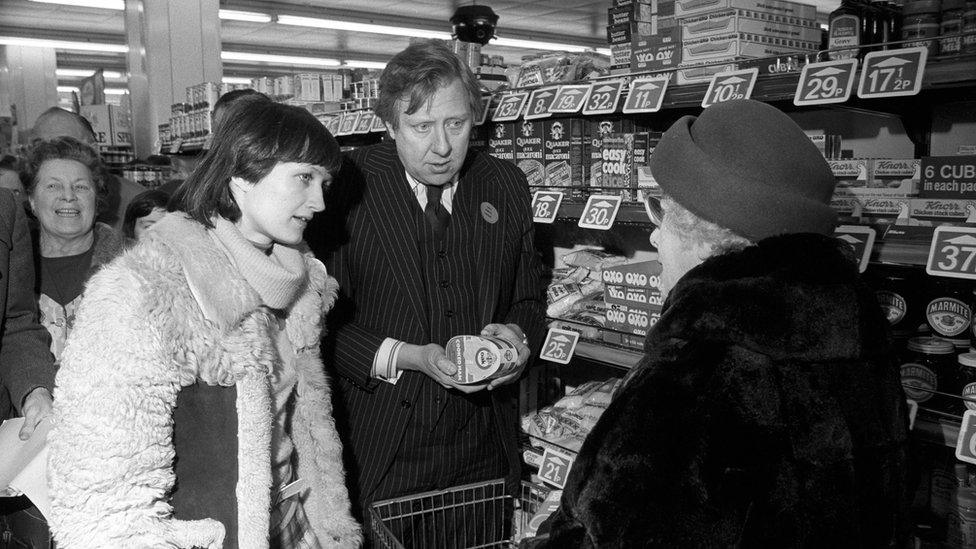
Fighting the Ilford North by-election in 1978. "It was the worst three weeks of my life", she said.
She was elected to Camden Council - chairing its Social Services Committee at just 25 - a standard bearer of Labour "sensiblism" against "loony left" activists bent on confrontation with Margaret Thatcher. Once, she ended up covered with chicken livers hurled from the floor.
She fought the Ilford North by-election in 1978 - only to lose Labour's majority. "It was the worst three weeks of my life," she said, targeted by the National Front and the Society for the Protection of Unborn Children, which sent her pictures of foetuses.
The press also hounded her - smelling scandal. She'd left her first husband - statistician Roger Jowell - and was living with corporate lawyer, David Mills. They later married. It was another 13 years before she made it to Westminster - as MP for Dulwich & West Norwood in 1992.
New Labour
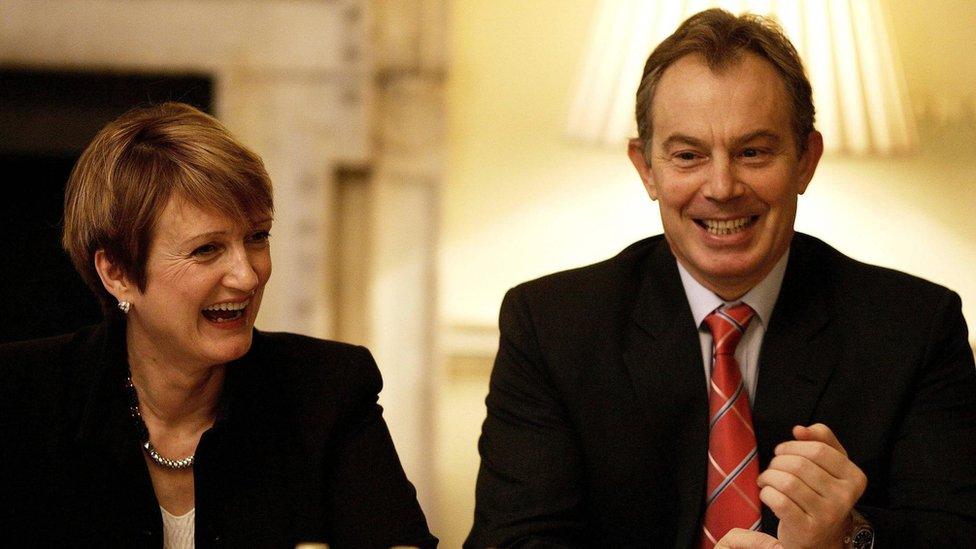
Tessa Jowell was Labour moderniser and supporter of Tony Blair
She arrived determined to play her part in the New Labour revolution. A fierce loyalty to Tony Blair never dimmed.
Friends included Margaret Hodge, Harriet Harman, David Blunkett and the Blairs themselves - a Who's Who list of the movement. Peter Mandelson and Alastair Campbell became god parents to her children.
In Opposition, Blair made her a whip - dealing with a party dominated by northern men. They found her direct, thoughtful - but with sharp political elbows. "If there is someone powerful in the room she has an almost subconscious locking on device," said one source.
Controversy
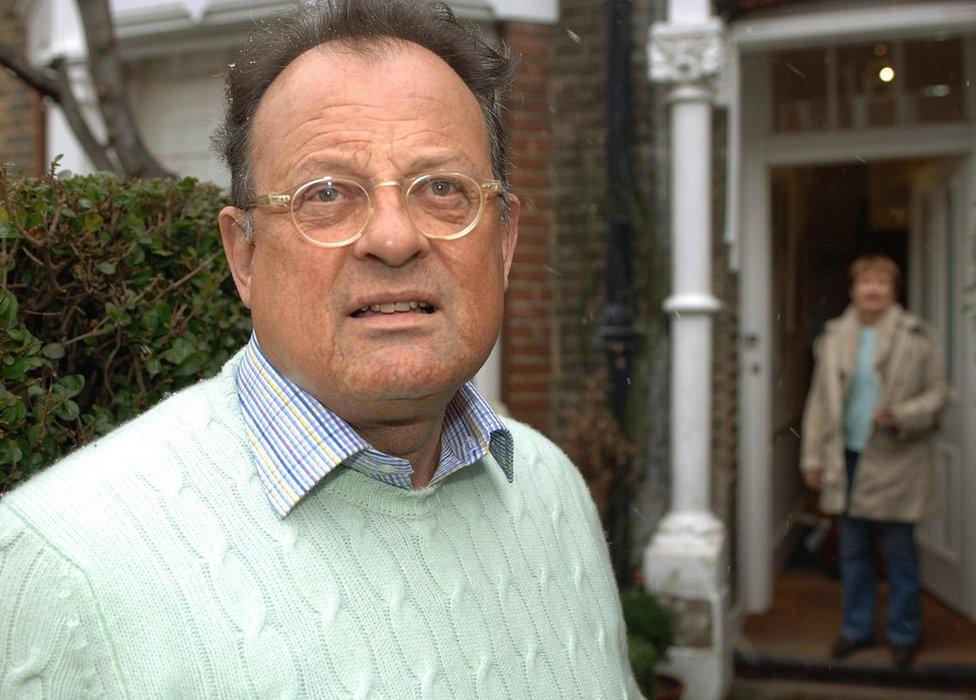
David Mills' business affairs were controversial and the couple split. They were later reconciled.
Her marriage to David Mills sustained for nearly 40 years. But his business affairs twice badly damaged her political career.
She became minister for public health in Blair's first government. A promise to be the "scourge of the tobacco industry" rebounded when it was discovered that Formula One had been given an exemption from a ban on tobacco advertising.
It was discovered that Bernie Ecclestone - Formula One's boss - had donated a million pounds to the party. Blair pleaded he "was a pretty straight kind of guy". For Tessa Jowell the problem was her husband's connections to the company that owned the Benetton racing team. She only just survived..
A decade later, a second scandal was far worse.
In 2006, by now secretary of state for culture, media and sport, her marriage came under renewed scrutiny. David Mills was accused of once taking money from Silvio Berlusconi, the controversial Italian prime minister, in return for illegally helping fight corruption charges.
The money had paid down the couple's mortgage. Mills furiously disputed the allegations and would spend years fighting the charges. Blair decided Jowell was free from wrong-doing - but she was politically damaged and the couple separated.
Opponents on the left felt all this was somehow emblematic of the New Labour project and its love affair with the ultra-rich.
Tessa Jowell admitted she hoped to restore the relationship over time. After she'd left office, she told Woman's Hour that they were seeing each other regularly and had "reached a state of stability which I never thought possible".
London Olympics
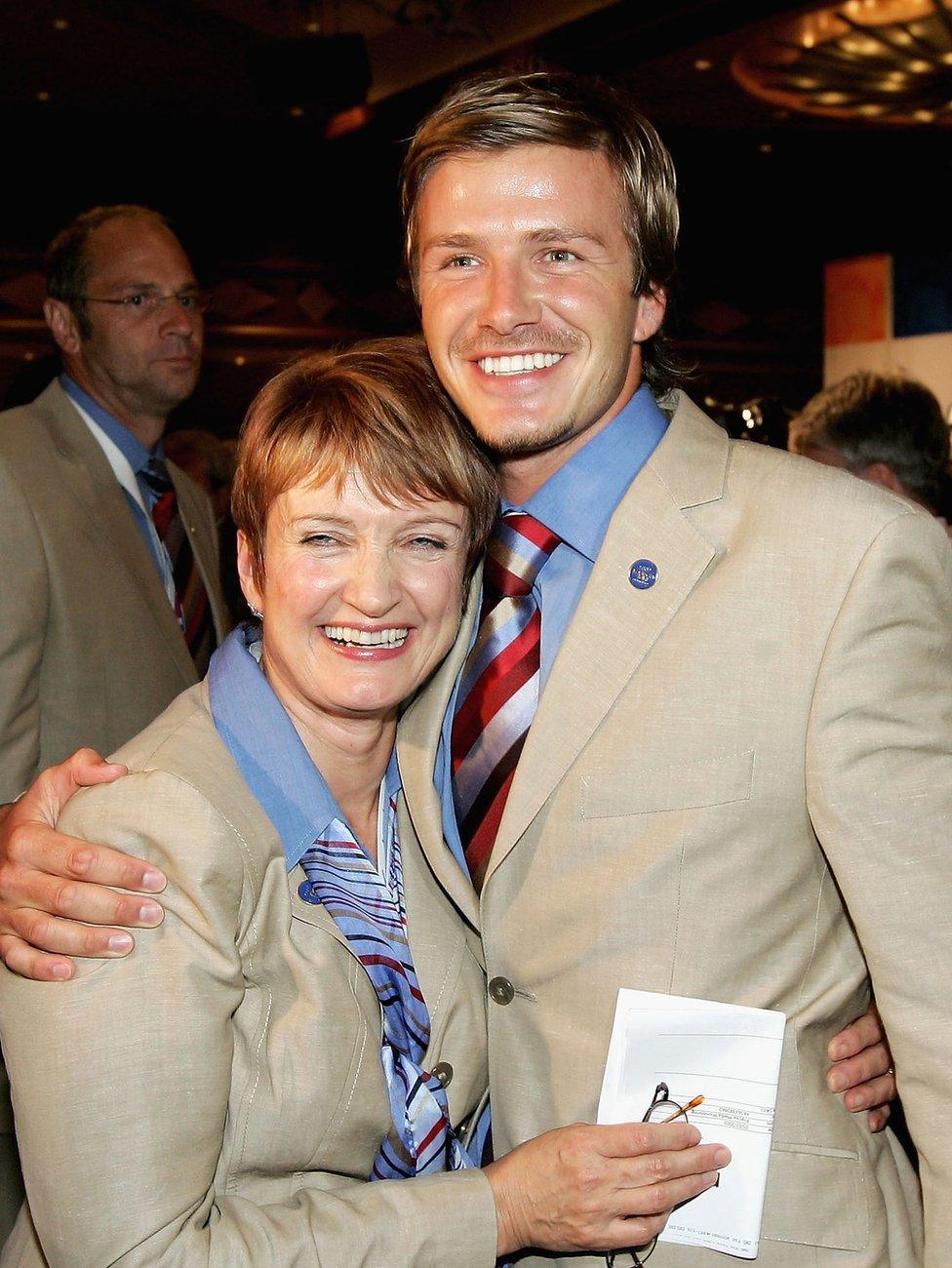
A hug from David Beckham to celebrate the announcement that London would host the 2012 Summer Olympics
Her department was shocked when she insisted the UK should bid for the 2012 Olympics. There was a concerted attempt to talk her out of it. She sold it to Blair in a seven-minute meeting on the Downing Street veranda - despite his real reservations.
When London won - after a Herculean lobbying effort - delivery fell to her. By the night of the opening ceremony, Labour was out of office - although she had remained a key member of the organising committee alongside Seb Coe and Jeremy Hunt.
She travelled to the stadium on the inevitable red London bus - only for the driver to get hopelessly lost. Boris Johnson and Ed Miliband teased her as they crossed the same roundabout for the third time. But she recognised that magical night as the high point of her career.
Bid to become London Mayor
Inevitably, her political star waned after Blair left office. She never had the same affinity with Gordon Brown or Ed Miliband - although neither dispensed with her altogether. She left Westminster at the 2015 general election.
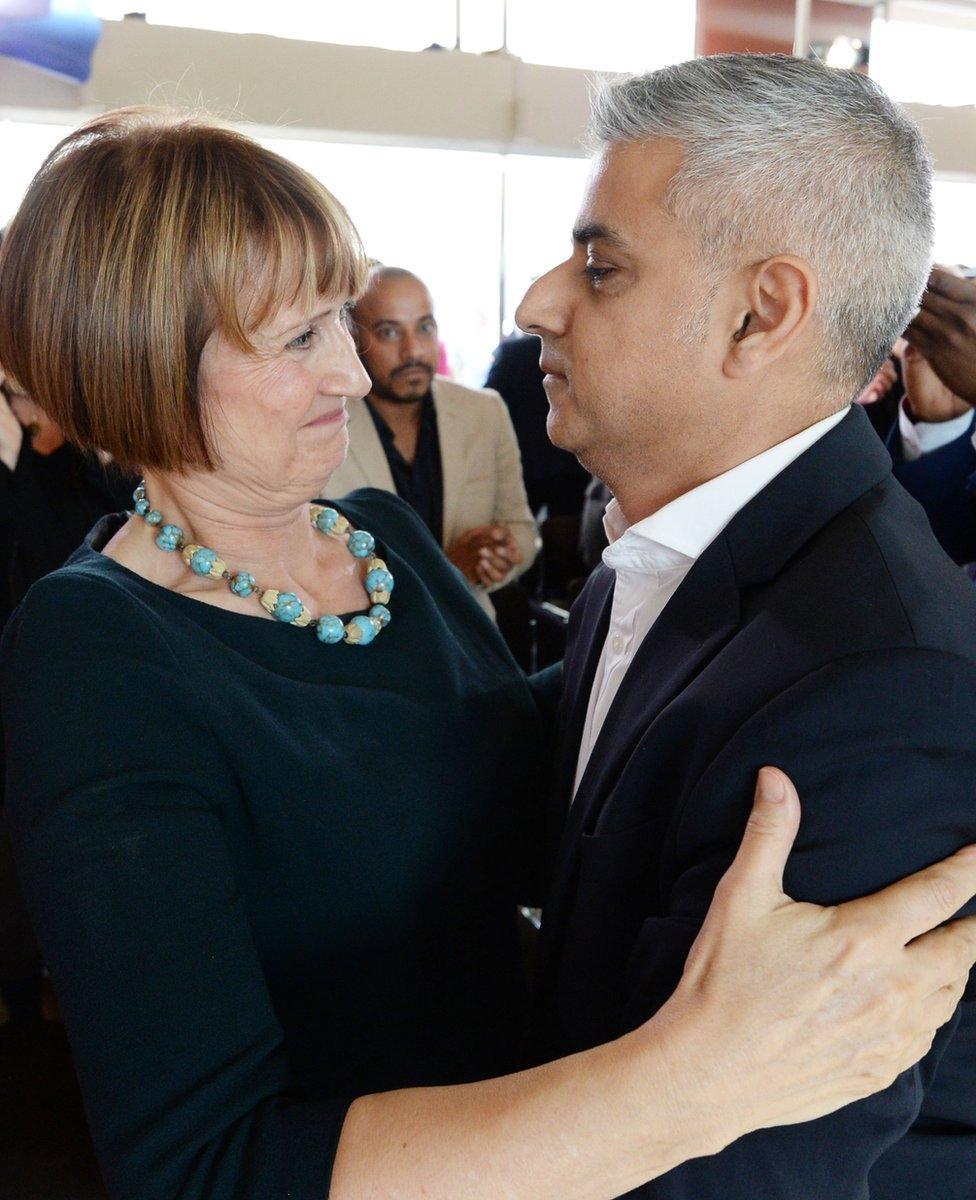
Congratulating Sadiq Khan after she lost the nomination to be Labour's candidate for mayor of London
Dame Tessa Jowell, as she now was, fought hard to become Labour's candidate for London mayor in 2016. She had high hopes - the Olympics had been successfully delivered and, as minister for London, she had handled the aftermath of the 7/7 bombings well - remaining close to the families of many victims.
She won the most votes from party members in the first round of voting. But among registered supporters - who could now pay £3 to vote - the most New Labour candidate was well beaten by both Sadiq Khan and Diane Abbott. The winds of change were blowing through the party.
Cancer
In May 2017, and by now a member of the House of Lords - Baroness Jowell of Brixton - she was on her way to give a speech about Sure Start children's centres - one of her proudest achievements as a minister and one she would herself highlight. She got into a taxi and suddenly found she couldn't speak.
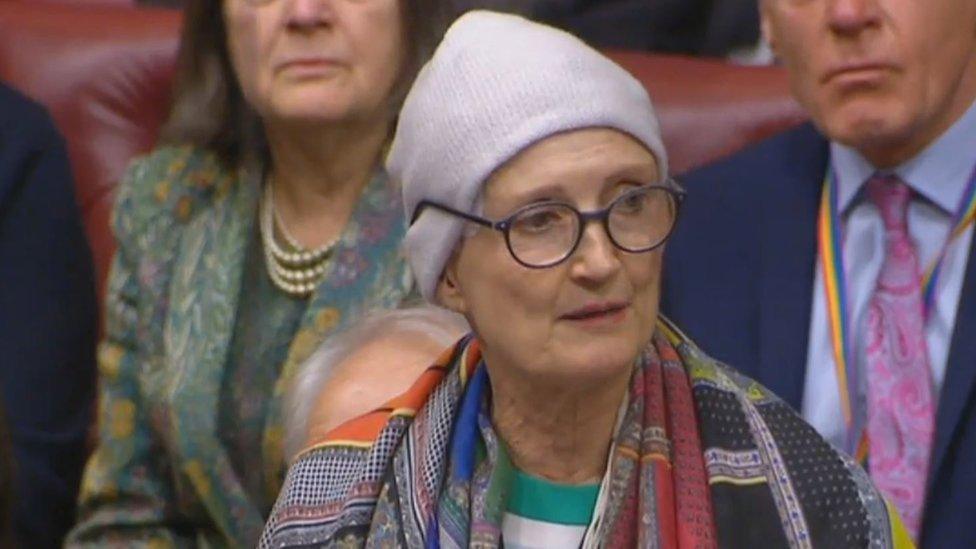
Lords Speech: "I am not afraid", she said - to a standing ovation
Two days later she was diagnosed with a rare form of brain cancer. She knew the prognosis wasn't good. She could only have the operation and wait.
Later, in a moving speech to the House of Lords, she called for adaptive trials. If one treatment wasn't working, she argued, patients should be able to try something different - even if it hadn't been fully tested. The risks, she said, look different if the clock's ticking against you.
"In the end what gives life meaning is not only how it is lived, but how it draws to a close," she said.
To a standing ovation Baroness Jowell quoted the last words of the poet Seamus Heaney... "Noli timere" - meaning "do not be afraid".
"I am not," she said, "afraid."